Top 10 Things Attracting Snakes to Your Home
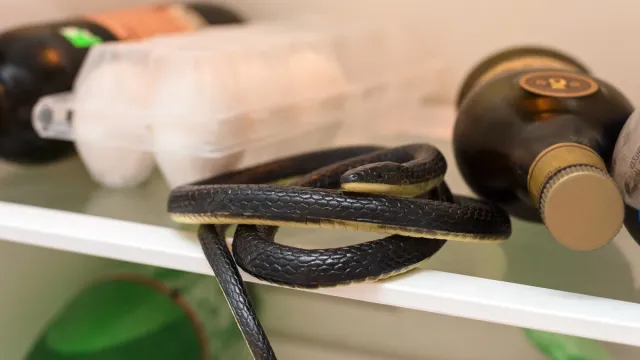
There are many different species of snakes living in the United States, from mild-mannered garter snakes you might find in your yard to venomous copperheads. It’s not just out in the wild that you’ll encounter these often frightening animals, though—they can, and frequently will, take up residence in your home if they’re given the opportunity to do so. If you don’t want to encounter a slithering surprise in your space, read on to find out what attracts snakes to your house, according to pest experts.
RELATED: 6 Top Signs There Are Snakes in Your Yard.
1
Mice
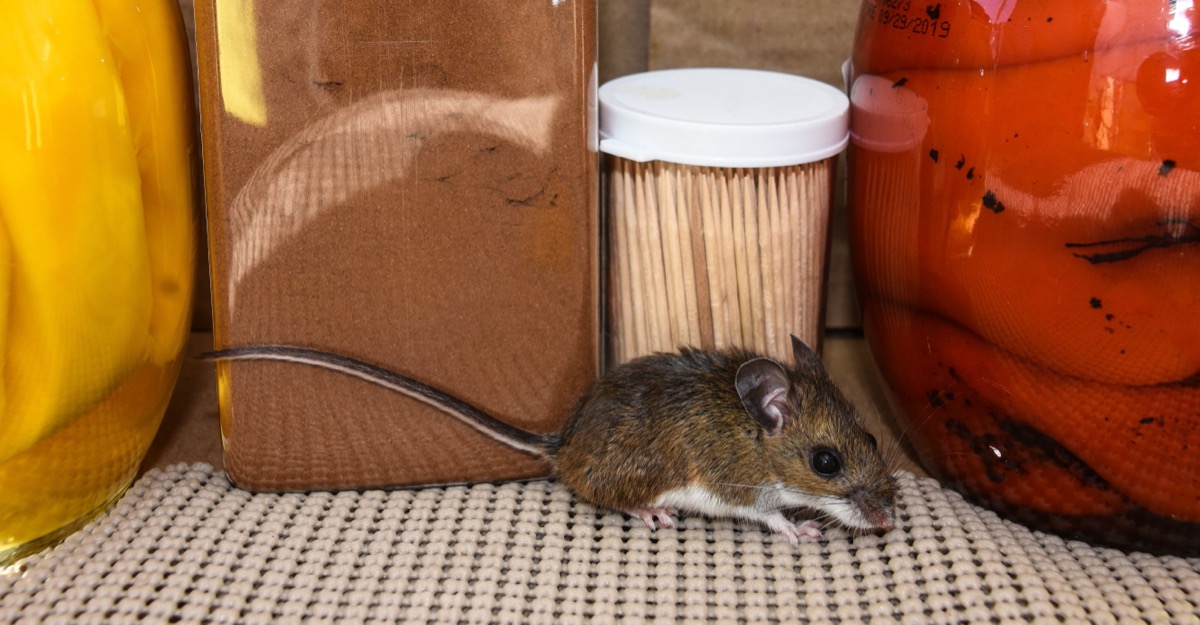
You may think the mice in your house are a pain, but they’re nothing compared to the snakes they may be attracting.
“Many species of snakes seek rodents for food, and if you have rodents living in your attic or property, it is very possible for snakes to be present, too,” says Adrienne Vosseler of Trutech Wildlife Service and Critter Control Operations.
“Bird eggs, baby birds, frogs, lizards, and other smaller amphibians… can also be an attractant for snakes,” adds Vosseler.
2
Gaps in your home’s foundation
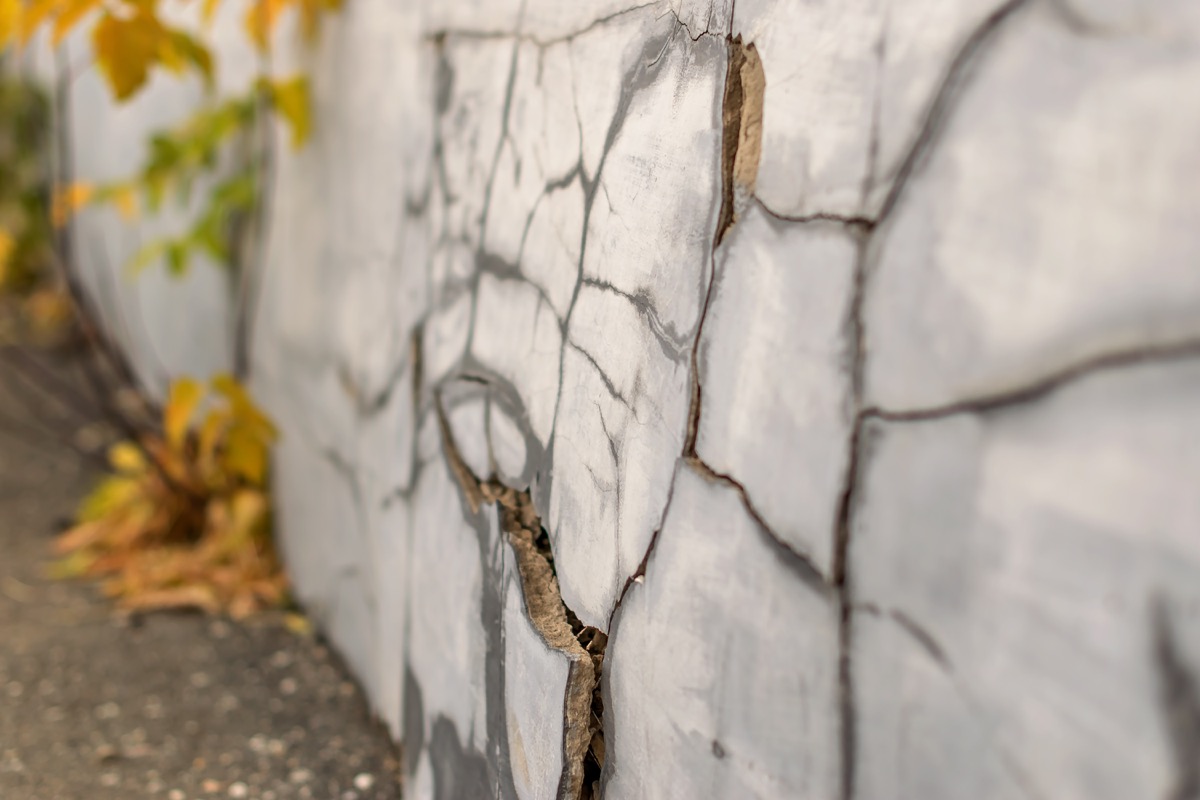
If you’ve been waiting to re-caulk those gaps around your window frames or fixing the cracks in your foundation, there’s no time like the present to reconsider.
“Snakes can get into your home through a gap the size of a pencil,” says Nancy Troyano, PhD, a board-certified entomologist with Ehrlich Pest Control. “It’s important to close up any holes, cracks, or crevices in the home, especially near the crawl space. Drainage areas are a perfect entry point for snakes.”
3
Leaf piles
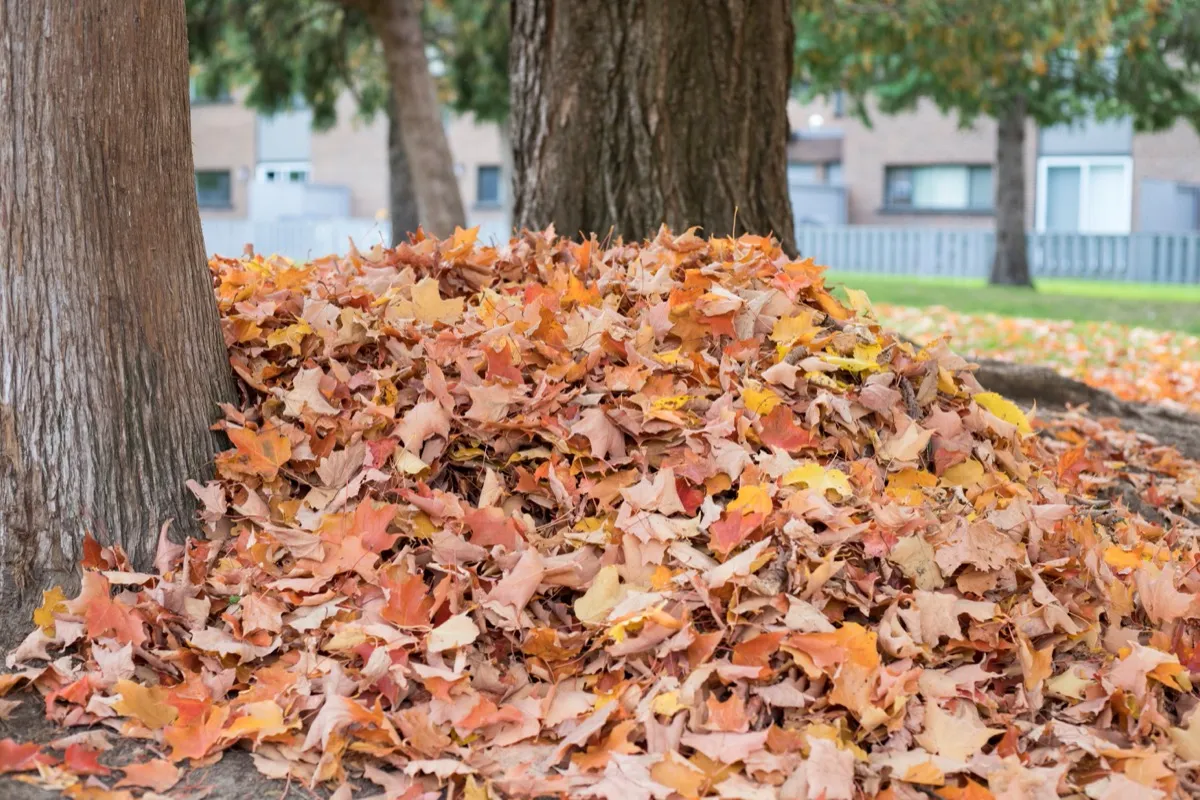
Those leaf piles are doing more than making your yard look messy—they could be providing the perfect cover for snakes to make their way into your home, especially if they’re near your foundation.
“Leaf piles and hedge trimmings provide camouflage for snakes, which allows a space for them to hide from predators,” explains Vosseler.
RELATED: 4 Scents That Attract Snakes to Your Yard, Experts Say.
4
Landscaping rocks
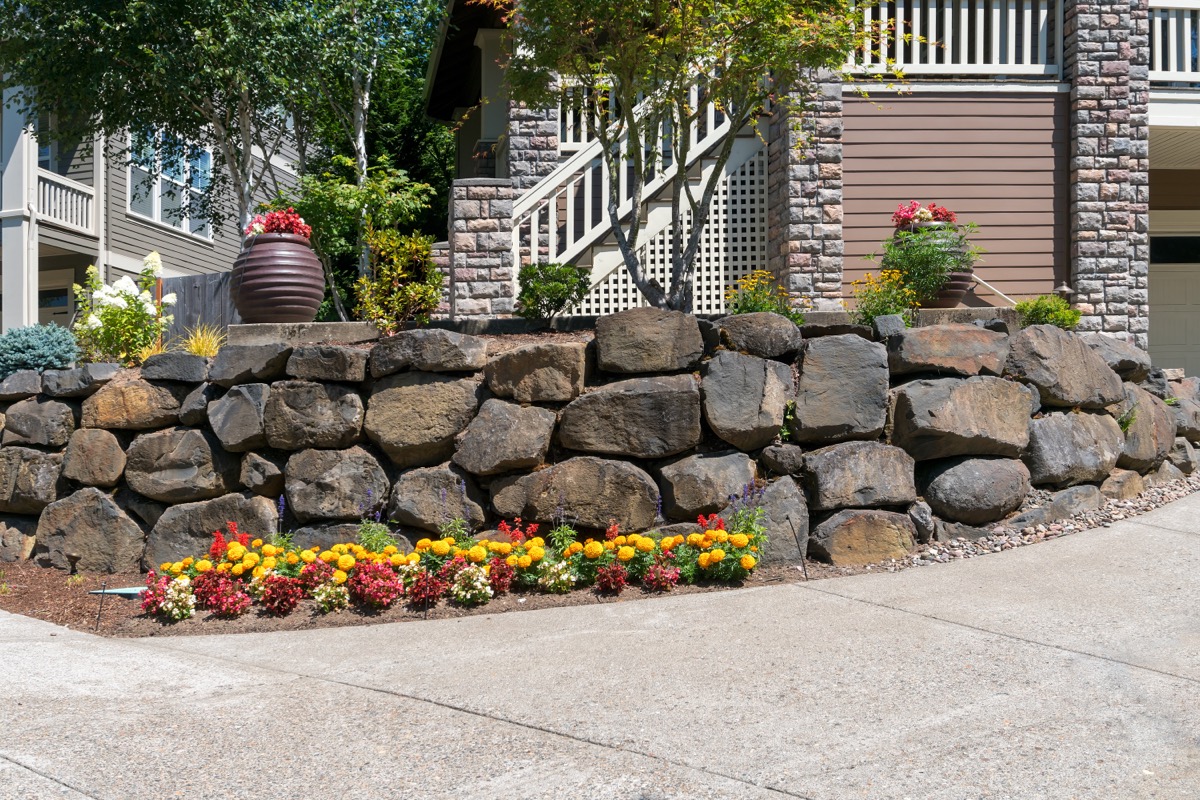
Using stones in your landscaping may give your home some aesthetic appeal, but if those rocks are directly against your house, it may also make your space more attractive to snakes.
“If you need a wood or rock pile, keep it far from your house so animals won’t be tempted to sneak into your home while they are hiding out,” says Troyano.
“Be cautious reaching into those piles,” she cautions. “You never know what you’ll stumble upon.”
5
Dense shrubbery

Maybe you thought that shrubbery surrounding your home would help draw the eye away from the less-than-stellar paint job on your foundation, or maybe you just think it adds some much-needed color to your space. However, regardless of why you planted it, that dense vegetation provides the perfect cover for snakes.
“Tall grass and unruly shrubs attract rodents, as well as providing great coverage for snakes. These places are secluded, which allows snakes the ability to hide from predators and allows them to hide while hunting for food,” says Troyano, who notes that unmanaged plant roots can also create cracks in a foundation that allow snakes access to your space.
6
Bird baths or standing water sources
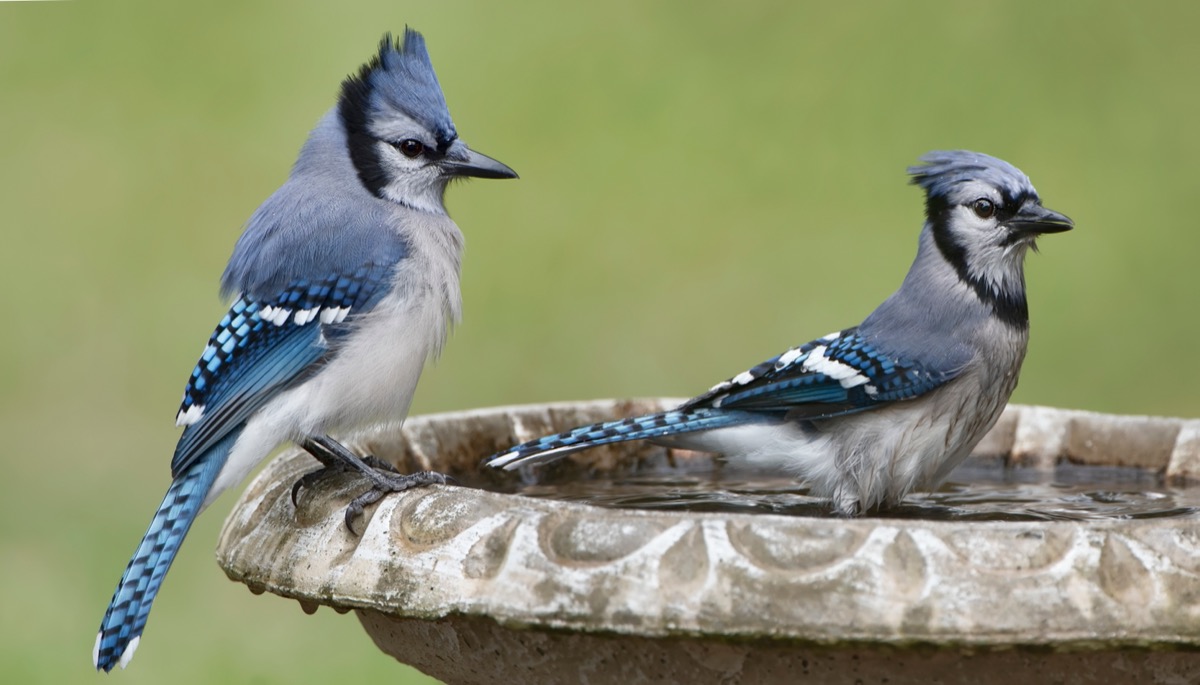
“Snakes do need water to survive, so if you have an easily accessible birdbath in the garden, chances are that you’ll attract snakes,” says Natalie Barrett, a pest control expert with Nifty Pest Control.
Other sources of standing water, such as toys in the yard or puddles created by leaky hoses, also can attract snakes to your house.
“Consider fixing those leaks, and ensure your yard has proper drainage to avoid pooling water,” advises Tom Su, gardening and landscaping expert at Lawn Edging.
RELATED: 6 Ways to Keep Snakes Out of Your Kitchen, According to Experts.
7
Cool, damp areas

Basements, attics, crawl spaces, or even shaded areas in your yard—Su describes these spots as “snake chill zones,” as they can provide the perfect moist and/or dark hiding spots for the reptiles.
“Keeping these areas dry and well-ventilated is key,” Su notes. “Consider a dehumidifier for damp indoor areas and trim any overgrown foliage that creates too much shade outside.”
8
Pet food
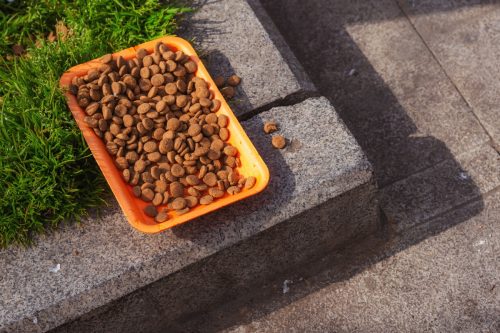
Pet food should always be kept in air-tight containers and away from the floor, as it attracts rodents, insects, and of course, snakes. It’s also advisable to keep it inside and not in your yard.
“Pet food is typically high in protein, which snakes love,” Brian Clark, BSN, a biological expert and founder of United Medical Education, previously explained to Best Life. “It also has a strong odor that can attract snakes from a long distance.”
9
Piles of blankets

Blankets are warm and cozy—for both humans and snakes.
“If you have blankets or rags in open containers, you’re providing the perfect warm and cuddly environment for a snake to make their home,” Eric Hoffer, owner of Hoffer Pest Solutions in Florida, previously told Best Life.
10
Heat sources
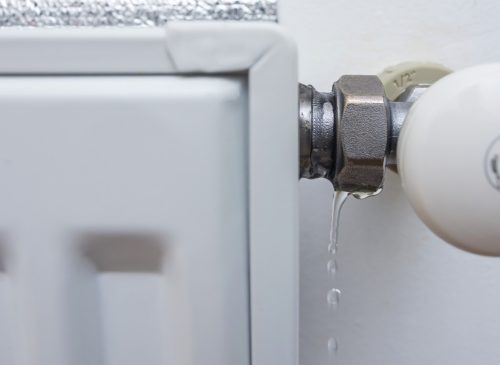
“Snakes are cold-blooded and regulate their body temperature using the environment,” A.H. David, a snake expert and founder of Pest Control Weekly previously told Best Life. “During cooler months, they may seek out warm places to help with their metabolic processes, and a heated basement can be an attractive spot.”
“This can often be near a heat source, so areas such as near water heaters [and] laundry pipes,” Daren Horton of Gecko Pest Control, also previously shared.
Snakes will also gravitate towards humid spots, so if you have too much moisture coming from your home, you may want to invest in a dehumidifier.
For more pest advice delivered straight to your inbox, sign up for our daily newsletter.